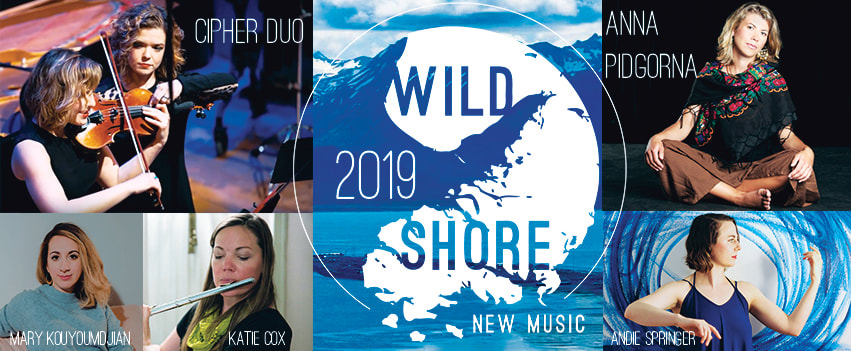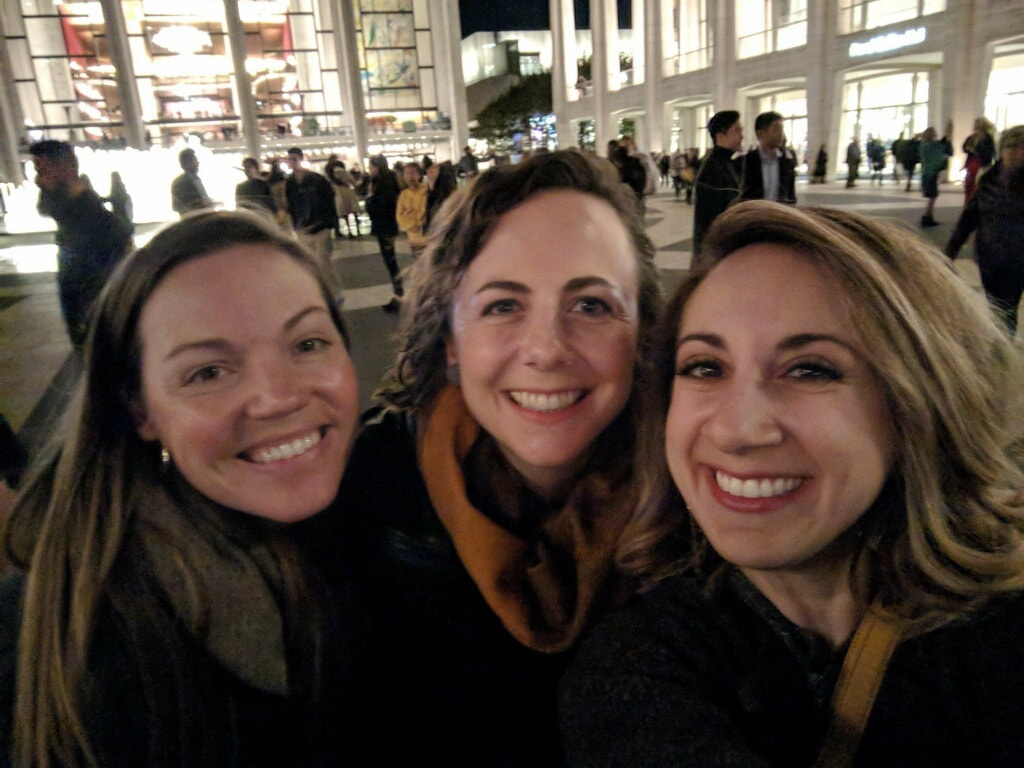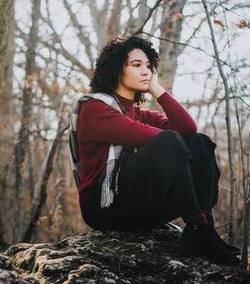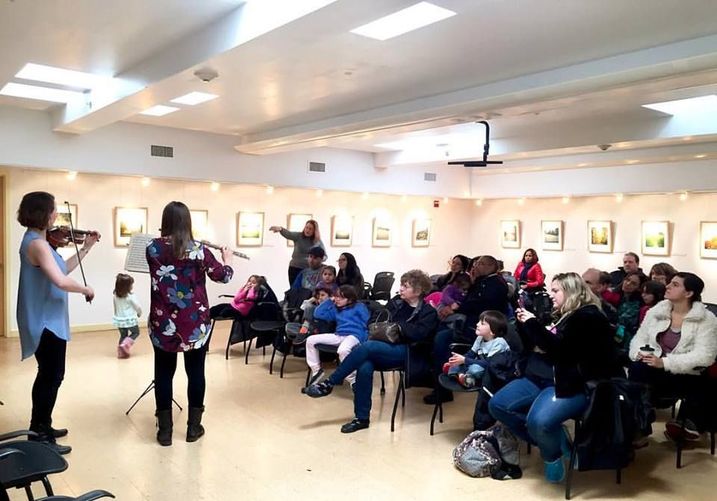PROGRAM
Kate Soper Cipher voice + violin
Kamala Sankaram Kivalina voice + violin
Anna Pidgorna Keening flute + 2 violins + piano
pause
Anna Pidgorna Through closed doors 2 violins
Anna Pidgorna Lullabies for my unborn children* voice + flute + 2 violins + piano
Sarah Goldfeather Come Back/Leave Me voice + violin
* World premiere & Wild Shore/ Bunnell commission
Kate Soper Cipher voice + violin
Kamala Sankaram Kivalina voice + violin
Anna Pidgorna Keening flute + 2 violins + piano
pause
Anna Pidgorna Through closed doors 2 violins
Anna Pidgorna Lullabies for my unborn children* voice + flute + 2 violins + piano
Sarah Goldfeather Come Back/Leave Me voice + violin
* World premiere & Wild Shore/ Bunnell commission
PROGRAM NOTES
Cipher by Kate Soper (see libretto page for text)
I. Jenny Holzer ft. Ludwig Wittgenstein
II. Pietro Bembo ft. Michael Drayton
III. Introducing Sigmund Freud
IV. Guido D’arezzo presents Sarah Teasdale (ft. Jenny Holzer)
Kivalina for voice & violin text and music by Kamala Sankaram
Kivalina is a small Inuit village in Alaska. Located on a barrier island only 1.9 square miles across, the rising sea level threatens to submerge the village, its people, and their culture. The second movement is inspired by Inuit throat singing. Sedna is the Inuit goddess of the sea. Agloolik is a mythical creature who lives below the ice.
Keening by Anna Pidgorna
The terms “keening” refers to an old Irish tradition of lamenting the dead. The practice was meant to guide the departed safely into the next world, and to help the living express and process their grief. We can grieve the death of a loved one, the loss of a relationship, a medical diagnosis, a long distance move which separates us from those we love, or even our past selves. Grief contains a plethora of often conflicting emotional states such as anger, guilt, denial, devastating sadness, lethargic melancholy, emptiness. The pain of grief can ravage us for days, or sneak up on us in otherwise serene moments of reverie or in response to the most mundane activities. Relentless attacks of such violent emotions leave us in a state of severe physical and mental exhaustion. This work was originally commissioned by UltraViolet Ensemble from Edmonton, Alberta.
Through closed doors by Anna Pidgorna
Through closed doors is a clandestine dialogue between two lovers trapped on opposite sides of a closed door. The definitive version of the score is inscribed on a restored antique door, which was once hacked with a hatchet leaving a jagged hole. This disturbingly fascinating wound inspired the dramatic conception of this piece and some of the musical gestures. The musical phrasing draws loosely on speech and song patterns, while the work's structure grows around the door guided by its various panels and defects. The graphic notation, designed specifically for this piece, eliminates accents, dynamics and bow pressure markings by incorporating them directly into the staff lines. The wavering staves resemble natural wood patterns and invite the performers to approach the score more intuitively. The layout of the musical lines on the door guides the physical manifestation of the drama being played out in the music. This work was commissioned by Thin Edge New Music Collective in Toronto, Ontario.
Lullabies for my unborn children by Anna Pidgorna
This work explores my rather intense maternal feelings, which have been plaguing me for some time now. I feel much tenderness and love thinking of my future children, mixed with a great deal of pain and anxiety about not being able to have them now or possibly ever. During my exploratory residency at the Bunnell Arts Centre in Homer, AK, as I perused volumes of Alaskan poetry, I noticed the recurring theme of teenage pregnancy and the difficulties faced by women who became mothers not by choice but through lack of proper sex education and access to birth control and abortion. It struck me how cruel it is that it seems so horribly easy to become a mother when one does not want to be and yet so hard to do it when one really wants to but one’s life does not fit the normal mold. Somehow, our society makes it hard for most women to make the choice we really want to make. I pondered this while wandering the Alaskan wilderness and decided to write these songs in the form of lullabies to encapsulate both my maternal hope and my pain through the gorgeous imagery surrounding me. I would like to thank all the Homer residents who welcomed me to their community and generously took me out on outings to their favorite natural environments. You are all a part of this work.
Come Back/Leave Me by Sarah Goldfeather
Come Back/ Leave Me are companion pieces that explore the emotions of abandonment and reunification. “Come Back” addresses the obsessive and inconsolable thought process you undergo after losing someone important in your life. “Leave Me” explores the emotional gymnastics of meeting this person again after a very long time - how you must confront the ways your mind has tinted your crystalized image of this person through rose-colored lenses, how he or she is both a stranger and yet hasn’t changed, how the sight of this person abruptly peels you back into an outdated version of yourself. After waiting and fantasizing about reuniting, the pain and anger of seeing this person again is momentarily too much to bear.
Cipher by Kate Soper (see libretto page for text)
I. Jenny Holzer ft. Ludwig Wittgenstein
II. Pietro Bembo ft. Michael Drayton
III. Introducing Sigmund Freud
IV. Guido D’arezzo presents Sarah Teasdale (ft. Jenny Holzer)
Kivalina for voice & violin text and music by Kamala Sankaram
Kivalina is a small Inuit village in Alaska. Located on a barrier island only 1.9 square miles across, the rising sea level threatens to submerge the village, its people, and their culture. The second movement is inspired by Inuit throat singing. Sedna is the Inuit goddess of the sea. Agloolik is a mythical creature who lives below the ice.
Keening by Anna Pidgorna
The terms “keening” refers to an old Irish tradition of lamenting the dead. The practice was meant to guide the departed safely into the next world, and to help the living express and process their grief. We can grieve the death of a loved one, the loss of a relationship, a medical diagnosis, a long distance move which separates us from those we love, or even our past selves. Grief contains a plethora of often conflicting emotional states such as anger, guilt, denial, devastating sadness, lethargic melancholy, emptiness. The pain of grief can ravage us for days, or sneak up on us in otherwise serene moments of reverie or in response to the most mundane activities. Relentless attacks of such violent emotions leave us in a state of severe physical and mental exhaustion. This work was originally commissioned by UltraViolet Ensemble from Edmonton, Alberta.
Through closed doors by Anna Pidgorna
Through closed doors is a clandestine dialogue between two lovers trapped on opposite sides of a closed door. The definitive version of the score is inscribed on a restored antique door, which was once hacked with a hatchet leaving a jagged hole. This disturbingly fascinating wound inspired the dramatic conception of this piece and some of the musical gestures. The musical phrasing draws loosely on speech and song patterns, while the work's structure grows around the door guided by its various panels and defects. The graphic notation, designed specifically for this piece, eliminates accents, dynamics and bow pressure markings by incorporating them directly into the staff lines. The wavering staves resemble natural wood patterns and invite the performers to approach the score more intuitively. The layout of the musical lines on the door guides the physical manifestation of the drama being played out in the music. This work was commissioned by Thin Edge New Music Collective in Toronto, Ontario.
Lullabies for my unborn children by Anna Pidgorna
This work explores my rather intense maternal feelings, which have been plaguing me for some time now. I feel much tenderness and love thinking of my future children, mixed with a great deal of pain and anxiety about not being able to have them now or possibly ever. During my exploratory residency at the Bunnell Arts Centre in Homer, AK, as I perused volumes of Alaskan poetry, I noticed the recurring theme of teenage pregnancy and the difficulties faced by women who became mothers not by choice but through lack of proper sex education and access to birth control and abortion. It struck me how cruel it is that it seems so horribly easy to become a mother when one does not want to be and yet so hard to do it when one really wants to but one’s life does not fit the normal mold. Somehow, our society makes it hard for most women to make the choice we really want to make. I pondered this while wandering the Alaskan wilderness and decided to write these songs in the form of lullabies to encapsulate both my maternal hope and my pain through the gorgeous imagery surrounding me. I would like to thank all the Homer residents who welcomed me to their community and generously took me out on outings to their favorite natural environments. You are all a part of this work.
Come Back/Leave Me by Sarah Goldfeather
Come Back/ Leave Me are companion pieces that explore the emotions of abandonment and reunification. “Come Back” addresses the obsessive and inconsolable thought process you undergo after losing someone important in your life. “Leave Me” explores the emotional gymnastics of meeting this person again after a very long time - how you must confront the ways your mind has tinted your crystalized image of this person through rose-colored lenses, how he or she is both a stranger and yet hasn’t changed, how the sight of this person abruptly peels you back into an outdated version of yourself. After waiting and fantasizing about reuniting, the pain and anger of seeing this person again is momentarily too much to bear.






 RSS Feed
RSS Feed